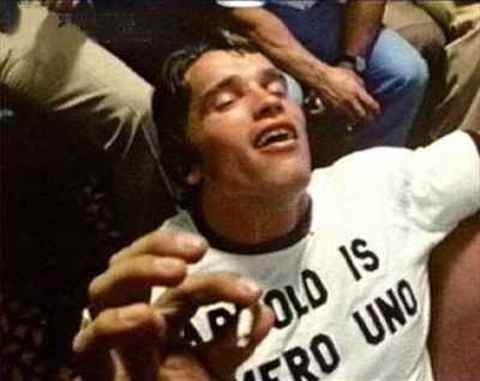
Backers of Prop 19 say they will return . . . in two years.
“We plan to continue this discussion,” spokeswoman Dale Jones said at a news conference in the Yes on 19 campaign's downtown Oakland headquarters.
“There's a seat at the table for 2012,” she confided. “This is not a matter of if, but when, and our leaders
are already working on how to move this issue forward.”
]
Job 1 will be reaching out to supporters to keep them energized about legalization and foes Yes on 19 believes were “misinformed” during the campaign.

“Social change doesn't happen overnight,” said Paul Armentano, deputy
director of the National Organization for Repeal of Marijuana Laws (NORML).
Actually, Prop 19 backers say legalization could come before 2012 if they can convince enough state legislators to push it under the Capitol dome in Sacramento.
As written, the initiative would have allowed adults age 21 and
older to possess and grow small amounts of marijuana.
It failed 54 to 46
percent, and backers and opponents agreed that voter misgivings about potential social problems from
increased marijuana use killed the measure.
However, there was also criticism about the way Prop 19 was written, that it should have more strongly stressed that revenue created from taxing pot would go toward undercutting drug traffickers and freeing up police to pursue more serious
crimes.
Prop 19 won in only 11 of 58
counties, with the strongest support in San Francisco and Santa Cruz. But it lost in the “Emerald Triangle”
of Humboldt, Mendocino and Trinity counties, California's celebrated marijuana-growing region. Growers feared legalization would cause their crops to be overtaken by corporations and local economies would sink.
Meanwhile, as the Los Angeles Times reports, some medical marijuana patients opposed Prop 19 because there was nothing written in the legalization that protected their meds and continued use of it. A dispenser also told me months before the election that he was opposed because the proposed taxes on pot would drive him out of business.
But Richard Lee, the Oaksterdam University founder who spent $1.4 million of his own money to qualify the
measure for the ballot and try to get it passed, did take solace in this: Prop 19 drew huge support among voters under 30. That shows him a
generation that does not fear the drug will one day constitute a
majority bloc of voters.
“The issue is generational,” Lee tells the Oakland Tribune. “Many of the biggest
contributors to the campaign were younger and based in Silicon Valley,
representing a changing of the guard of political influence and
leadership.”

OC Weekly Editor-in-Chief Matt Coker has been engaging, enraging and entertaining readers of newspapers, magazines and websites for decades. He spent the first 13 years of his career in journalism at daily newspapers before “graduating” to OC Weekly in 1995 as the alternative newsweekly’s first calendar editor.

